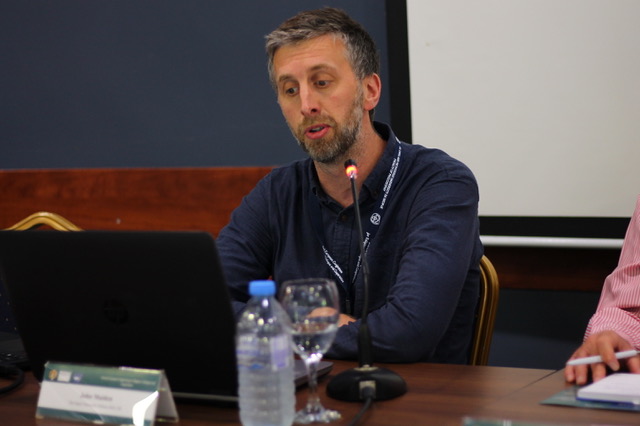
Evangelicalism and the Holy Spirit
October 1-3, 2025 | Virtual Conference
From its early eighteenth-century emergence to the rise of its Pentecostal and charismatic varieties, Evangelicalism has often been shaped, differentiated, and divided by different theologies and practices of the Holy Spirit. This conference will map and elucidate the varieties of Evangelical approaches to the Holy Spirit across time and place. Speakers include D. Bruce Hindmarsh, Tommy Kidd, Lalsangkima Pachuau, and Leah Payne. Full program and registration details to follow soon, but in meantime please contact ESP Director John Maiden (John.Maiden@open.ac.uk ) with enquiries.
The evangelical movement is a section of Protestantism that is growing. In the United States it has overtaken the mainline churches, and in the majority world it has mushroomed over recent years. Evangelicals, alongside Roman Catholics, are likely to form the great bulk of Christians in the world of the future. Some of the main outlines of the history of the movement since the Great Awakening of the eighteenth century are fairly well known, but there are other aspects that have been little studied. There are fields of American evangelical history that remain uncultivated, and some lands where it has put down roots more recently lack thorough academic scrutiny altogether. There is great scope for the development of scholarship on evangelical Christianity, including its distinctive Pentecostal and charismatic varieties.
For many years down to 2014 there existed at Wheaton College, Illinois, an Institute for the Study of American Evangelicals. It held a number of international conferences and generated several important collections of essays in the field. The Evangelical Studies Program, under the auspices of the Institute for Studies of Religion, has picked up the torch of the Wheaton agency by promoting the scrutiny of evangelical history and to extend its coverage beyond the confines of the United States, including non-English speaking contexts and the global South.
The need for study is apparent at a time when evangelical identities are under widespread discussion. These, in all their variety, needs to be explained in depth and detail if they are to be understood in the contemporary world. All Christian denominations containing evangelicals are within the scope of the Program. The central aim of the Evangelical Studies Program is to promote influential academic research. It achieves that goal by holding conferences, which have so far been held on-line and so have attracted scholars from all over the globe, and by publishing material, whether from conferences or otherwise.
The conference held in 2020 focused on “Evangelicals in Latin America”; in 2021, it dealt with “Evangelicals and Religious Freedom”; a third conference in 2022 took as its subject “Evangelicals and their Past”, fourth in 2023 addressed “International Evangelicalism”; and in 2024 the theme was Evangelicals and Missions. Volumes from the first and second have been published by Baylor University Press and volumes from the third and fourth are being prepared for publication. Plans are in preparation for publication, also, of the fifth conference.
The sixth conference, “Evangelicalism and the Holy Spirit”, is planned for October 1 – October 3, 2025.
The Program has established a roster of Fellows, making it a global hub for the study of evangelicals. They include David Bebbington (University of Stirling, UK), Joel A. Carpenter (Calvin University, USA), Leah Payne (George Fox, USA), Stuart Piggin (Macquarie University, Australia) and Dana L. Robert (Boston University, USA).The non-resident Director is John Maiden, Open University, UK.
| Director |
 |
| John Maiden Head of Religious Studies and Senior Lecturer at the Open University, UK, and Non-Resident Fellow of ISR John.Maiden@open.ac.uk |





